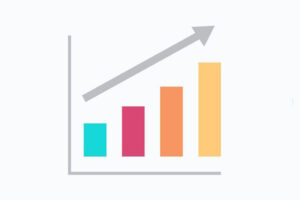Overview
Students in the Epidemiology and Biostatistics Concentration study the factors that underlie health and disease in human populations, including the analysis of data to develop and evaluate strategies for disease prevention and control. In this online MPH program, students will acquire proficiency in both epidemiology and biostatistics and will be able to immediately apply these skills to improve the effectiveness of public health programs.
The Mission of the Epidemiology and Biostatistics Concentration is to: generate new knowledge that can lead to improvements in health, while emphasizing and identifying emerging areas of inquiry, especially those that cross disciplinary boundaries; evaluate the effectiveness of new and existing public health programs and policies; disseminate and apply existing and new knowledge in the training of health professionals who will engage directly with populations at highest risk of poor health, and/or who will conduct research in epidemiology and biostatistics; and serve the larger communities in which we live and work by using our skills and knowledge.
Upon satisfactory completion of the MPH concentration in Epidemiology and Biostatistics, graduates will be able to demonstrate the following competencies:
- Demonstrate methodological expertise in selecting and formulating a research hypothesis, study design, obtaining or collecting epidemiologic data, data analysis, and interpreting/presenting in written and oral forms.
- Collaborate with both investigators and statistical colleagues in the analysis of data from biomedical and public health studies applying knowledge of summary evidence using systematic review or meta-analysis.
- Implement methods of data management and cleaning documentation for epidemiologic data sets, including using SAS, R, and/or Stata.
- Use appropriate regression analysis techniques for continuous, binary, count and censored time to event outcomes to analyze data from medical and other public health studies.
- Conduct epidemiologic analyses for linear, logistic, categorical, and continuous data, Cox, and Poisson regression, including multivariate and longitudinal models.
- Provide expertise in data analysis and statistical methods.
- Interpret study findings, including critically identifying strengths and limitations of individual studies
- Demonstrate ability to write clear grant proposals and results of research studies.
Berkeley Public Health commits to creating and upholding a community that is safe, respectful, and inclusive. We encourage you to review our full Principles of Community Statement.
Watch the latest advising session here.
MPH Degree Course Requirements
There are 6 required core and breadth courses for all students earning an MPH degree. These courses, taken primarily in the first year of the program, provide students with a foundation in the concepts and competencies relevant to addressing determinants of health, using both qualitative and data-driven approaches.
- PHW200G: Health and Social Behavior (3 units, Fall Full Term)
- PHW200F: Intro to Environmental Health Science (3 units, Spring Full Term)
- PHW200E: Health Policy and Management (3 units, Summer 1)
- PHW142: Introduction to Probability and Statistics (4 units, Spring Full Term)
- PHW250: Epidemiologic Methods (3 units, Fall Full Term)
- PHW289: Interdisciplinary Seminar (3 units, Summer 1)
Epidemiology & Biostatistics Course Requirements
In addition to the six required core and breadth courses for all students earning an MPH degree, students in the Epidemiology and Biostatistics Concentration must complete: 1) two epidemiology and biostatistics core requirements; 2) one course in data management; 3) at least five additional units of courses in Epidemiology and Biostatistics; and 4) a sufficient number of elective courses to complete the 42 units required for the MPH degree. Elective courses are any non-required courses within the OOMPH program, including but not limited to additional courses in Epidemiology and Biostatistics. (Note: Given our growing program, course offerings are subject to change; the course catalog has the most up to date offerings).
- PHW241: Intermediate Biostatistics for Public Health (4 units, Spring Full Term)
- PHW250B: Epidemiologic Methods II (4 units, Fall Full Term)
Many public health professionals use statistical software to manage, clean, and analyze health-related data. In response to the increasing proportion of the public health professional and academic workforces who use R software for statistical analysis, the majority of quantitative courses at Berkeley Public Health use R software, although other software packages are also commonly used by the Berkeley Public Health community (e.g., SAS, STATA). All students in the OOMPH program are introduced to the R programming language in the required breadth course PHW142: Introduction to Probability and Statistics. Other courses in the OOMPH program that use R software are indexed according to the level of R experience you need at the beginning of the course in order to be successful.
Students in the Epidemiology and Biostatistics Concentration will require more advanced training in data manipulation and analysis than what is provided in PHW142. Students in the Concentration must therefore complete at least one dedicated course in data management and programming using R or SAS software:
- PHW251: R for Public Health (2 units, Fall Full Term)
- PH271K: Introduction to Data Management and Programming in SAS for Public Health (2 units, Spring Full Term)
- PHW219: Introduction to Survey Methods (3 units, Spring 1 or Summer 2)
- PHW225A: Introduction to Applied Implementation Science (1 unit, Spring 1)
- PHW225B: Implementation Science Case Studies in Low and Middle Income Countries (1 unit, Spring 2)
- PHW251B: Data Visualization for Public Health (2 units, Fall Full Term)
- PHW252: Epidemiological Analysis (Note: PHW250B and PHW241 must be completed prior to enrollment, PHW251: R for Public Health is highly recommended) (4 units, Fall Full Term)
- PHW252A: Introduction to Causal Inference for Public Health Professionals (4 units, Spring Full Term)
- PH252C: Intervention Trial Design (2 units, Spring Full Term)
- PHW253: Outbreak Investigations (3 units, Fall 2)
- PHW268: Water, Sanitation and Hygiene (WaSH) for Health and Development (3 units, Summer 2)
- PHW272C: Applied Spatial Data Analysis for Public Health (3 units, Spring 2)
Course Planning
Courses in the Epidemiology and Biostatistics Concentration are generally fast moving, some involve independent analysis of epidemiologic data, and they often build upon material in prior courses. We highly recommend that students not fall behind, as course material progressively builds on the methodological foundation of prior weeks which can make it difficult to catch up. Reflecting this high expected level of student engagement, some required courses in the Concentration are four units (PHW250B, PHW241). To ensure that OOMPH students can maintain the six units per semester required for full time status and financial aid eligibility, there are a variety of two unit courses that have been designed to pair with the required four unit courses.
In addition, most of the courses in the program are only offered once per year (e.g., Fall, Spring, or Summer terms only), and many courses in the Concentration have prerequisites. Thus, it is highly recommended that students develop a semester-by-semester course map to ensure that the requirements for advanced courses will have been met within the time frame of the program. For example, the optional course PHW252: Epidemiological Analysis is usually taken in the final semester, as PHW250B and PHW241 must be completed prior to enrollment. To help you plan your program and ensure you successfully complete the requirements for the Concentration, we have developed several tools for your use, including sample schedules and a course planning spreadsheet:
Epidemiology & Biostatistics Sample Schedules
Course Planning
Advising Meetings
- Darshani Johnson, Program Manager, is available to meet with students to plan out their course maps. Feel free to book a 1:1 Zoom meeting with her here to review your course plan.
Completion of Course Requirements
- OOMPH staff and advisors are here to help students every step of the way during their program. Program Managers assess student progress toward degree requirements by running reports and communicating with students as needed. That said, it is ultimately up to each student to ensure that they are enrolling in and satisfactorily completing their required courses. Students should reach out to their Program Manager with any questions related to degree requirements.
Elective Options
To complete the 42 units required for the MPH degree, students in the Epidemiology and Biostatistics Concentration select 2-3 elective courses, depending on how many units are needed. Electives are any non-required courses within the OOMPH program (including the “Additional Courses in Epidemiology & Biostatistics” above and beyond the required 5 units); you can select electives to match your interest and schedule. Below is a sampling of electives that are often popular with Epidemiology and Biostatistics students grouped by areas of interest, but the full list of course offerings can be found on the Course Catalog page.

Interested in infectious disease epidemiology and control?
The intersection of Epidemiology and Infectious Disease involves the study of factors that determine the distribution of health and disease in human populations. The infectious disease curriculum is designed to emphasize the biology and molecular biology of host-pathogen interactions. The epidemiology curriculum is focused on evidence-based methods of infectious disease control, including public health preparedness.
- PHW253: Outbreak Investigations (3 units, Fall 2)
- PHW257: Emergency Preparedness and Disaster Management (3 units, Summer 1)
- PHW260: Infectious Diseases (3 units, TBA)

Interested in improving healthcare outcomes globally?
Global Health offers students from different levels of public health background an opportunity to apply fundamental principles toward improving population health at a global level. Through diverse courses taught by global health faculty from UC Berkeley and UCSF Global Health Sciences, students gain a trans-disciplinary perspective of how global challenges are being addressed in the field across public health and health science disciplines. Students will be trained on how to integrate new knowledge with their professional and personal experiences.
- PHW209: Comparative Health Systems (3 units, Spring 2)
- PHW212: Foundations of Global Health (3 units, Fall 1)
- PHW213: Global Health Ethics (3 units, Fall 2)

Interested in how spatial data can inform healthcare decisions?
Spatial Data Science for Public Health immerses students in the field of Geographic Information Systems (GIS), which is becoming increasingly central to public health practice, methods, and techniques. As locational information is aligned with health data, public health practitioners increasingly rely on geo-data to increase impact. Students in this track will be empowered to process, manipulate, and visual-spatial data.
- PHW272A: Intro to GIS for Public Health (3 units, Spring 1)
- PHW272C: Applied Spatial Data for Public Health (3 units, Spring 2)
- PHW277: GIS for Public Health Practice (3 units, Spring 2)

Interested in public health programs to improve healthcare outcomes?
Community Health Sciences offers a combined study of populations, including historically marginalized groups, to include ethnicity, gender, sexual orientation, and socioeconomic status, drawing upon epidemiological, anthropological, and demographic research. These courses encompasses the use of program planning tools, behavioral determinants of population health, exposure to evaluation methods, and real-world practice with survey methods in addressing population needs.
- PHW205: Program Planning and Development (3 units, Summer 2)
- PHW206A: Nutrition Assessment (3 units, Spring 1)
- PHW207A: Maternal and Child Health Nutrition (3 units, Fall 1)
- PHW218: Evaluation of Health & Social Programs (3 units, Spring 2)
- PHW219: Social and Behavioral Research: Introduction to Survey Methods (3 units, Spring 1 or Summer 2)

Interested in drug safety, market access, and the cost of prescription drugs?
Regulatory Science concerns the development and use of tools, standards, and approaches to more efficiently develop products and to more effectively evaluate produce safety, efficacy, and quality with the overarching objective of improving global health. With the increasing role of regulatory agencies as knowledge stewards and brokers (data sets), comes the expansion of the regulatory mission from solely protection to the protection and promotion of the health of the public.
- PHW209: Comparative Health Systems (3 units, Spring 2)
- PHW226F: Cost-Effectiveness Analysis (1 unit, Spring 1)
- PHW236A: Regulatory Science, Drug Discovery and Public Health (3 units, Fall 2)